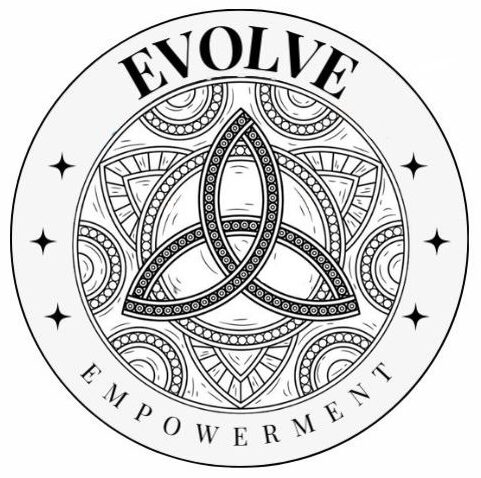The comfort zone is a space of familiarity, routine, and security, where individuals feel at ease and in control of their surroundings.
While this zone provides a sense of stability, it also shapes the way we think, behave, and ultimately grow.
The relationship between the comfort zone and mindset is profound, influencing personal development in ways we may not always realize. According to psychologist Carol Dweck, our mindset plays a crucial role in how we approach challenges and opportunities.
A fixed mindset keeps us anchored in the familiar, avoiding discomfort and risk. In contrast, a growth mindset thrives on learning and stretching beyond what feels safe.
Understanding how the comfort zone functions can help us harness its power rather than allowing it to hinder our progress.
What It Means and Its Role in a Growth Mindset
The concept of the comfort zone originates from psychology, describing the mental state in which a person operates with minimal stress or effort. It is the default setting where habits dictate behavior, and predictability minimizes uncertainty.
While comfort itself is not inherently negative, its role in personal development is twofold—it can provide stability but also create stagnation if one becomes too reliant on it.
Carol Dweck’s research on mindset highlights the stark contrast between a fixed and a growth mindset.
Those with a fixed mindset believe their abilities are static, leading them to avoid challenges that might expose their weaknesses. On the other hand, individuals with a growth mindset embrace challenges as opportunities to learn and develop.
The comfort zone plays a critical role in this dynamic—remaining within it can reinforce a fixed mindset, while stepping beyond it fosters resilience, adaptability, and continuous learning.
Staying inside the comfort zone can lead to complacency, where opportunities for expansion and innovation are overlooked.
Conversely, intentionally stepping outside of it can trigger self-discovery, skill-building, and breakthroughs that redefine personal and professional trajectories.
The Four Zones of Comfort.
Understanding Their Impact on Personal Growth.
Personal growth is not a sudden leap but a gradual process that involves navigating through different psychological zones.
These include the comfort zone, the fear zone, the learning zone, and the growth zone. Each of these stages plays a crucial role in development and self-awareness.

- Comfort Zone. A space of security and predictability, where daily routines dictate actions. While this zone offers stability, staying too long within it may limit ambition and deter risk-taking.
- Fear Zone. Stepping beyond comfort triggers fear of failure, self-doubt, and anxiety. This zone is where excuses emerge, and resistance to change is strongest.
- Learning Zone. Overcoming fear leads to acquiring new skills, broadening perspectives, and increasing confidence. Mistakes become learning experiences rather than deterrents.
- Growth Zone. The ultimate stage of personal transformation, where challenges become opportunities, new goals are set, and the individual continuously evolves.
Understanding these zones helps in recognizing where one stands and how to navigate the transition between them.
The psychological impact of moving between zones is significant—exposing oneself to challenges fosters resilience, while retreating into comfort can reinforce self-imposed limitations.
Real-life examples illustrate these zones in action. A professional reluctant to take on leadership roles due to self-doubt remains in the comfort zone. However, if they take on a small project outside their expertise, they enter the fear zone.
As they learn, adapt, and develop new skills, they progress through the learning zone, eventually reaching the growth zone where leadership becomes second nature.

How Stepping Out of Your Comfort Zone Fuels Personal Growth.
Leaving the comfort zone is often accompanied by fear—fear of failure, criticism, or uncertainty.
However, this discomfort is an essential ingredient for growth. Risk-taking fosters resilience and adaptability, equipping individuals with the skills to navigate complex situations.
Practical techniques can help in gradually expanding one’s comfort zone. These include:
- Incremental Challenges. Setting small, manageable goals that push boundaries without overwhelming.
- Reframing Failure. Viewing setbacks as learning experiences rather than personal shortcomings.
- Exposure Therapy. Gradually increasing exposure to discomfort until it becomes familiar and manageable.
Stories of individuals who have embraced discomfort showcase the transformative power of stepping beyond what feels safe.
Entrepreneurs who risked career shifts, athletes who endured grueling training regimens, or students who pursued unconventional paths—all exemplify how personal evolution thrives on challenge.
Transforming the Comfort Zone into a Catalyst for Success.
Rather than viewing the comfort zone as an obstacle, it can be leveraged as a foundation for strategic growth. Using comfort intentionally—balancing stability with challenge—creates a sustainable growth strategy.

The interplay between comfort and innovation is evident in creative and business landscapes.
Companies that blend familiar structures with experimental ideas thrive in competitive markets. Similarly, individuals who use their comfort zone as a place of rest and reflection before stepping out into new challenges experience steady, meaningful growth.
Mindfulness practices enhance comfort zone awareness, allowing individuals to recognize when they are stagnating and when they need to push forward.
Techniques such as self-reflection, journaling, and guided visualization encourage a conscious approach to personal development.
Actionable steps to maintain a balance between comfort and growth include:
- Periodic self-assessment to identify areas of stagnation
- Seeking discomfort in controlled, intentional ways
- Cultivating a mindset that embraces continuous learning
By embracing change, taking calculated risks, and using comfort as a strategic tool rather than a limitation, individuals can shape their mindset for success and growth.
The comfort zone is not an enemy—it is a starting point. What matters is how we use it to propel ourselves forward.

